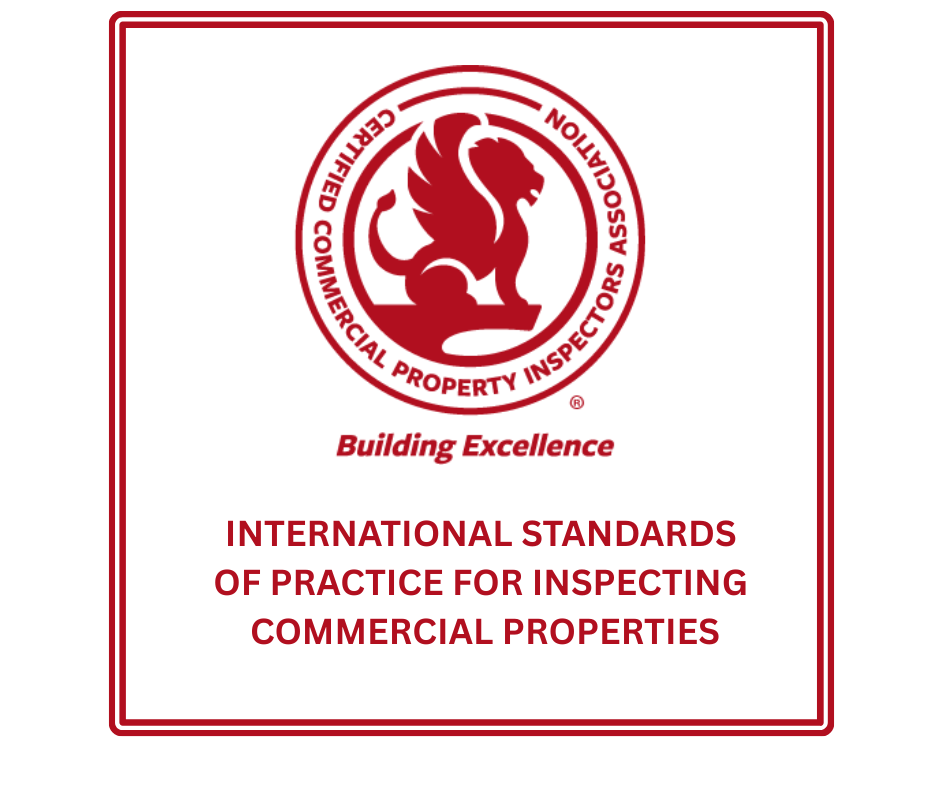As the owner of a Commercial Property Inspection company, one of the most common questions I get from clients is this:
“Will your inspection tell me if the building is up to code?”
It’s an important question and one that we like to review with our potential clients. A commercial property inspection, conducted under the CCPIA Commercial Standards of Practice (ComSOP), is not the same thing as a building code inspection. While both serve critical purposes, they are fundamentally different in scope, intent, and application.
Purpose: General Condition vs. Code Compliance
A commercial property inspection under the CCPIA ComSOP is designed to provide an overview of the property’s current condition, including the major systems and components such as structure, roofing, HVAC, electrical, plumbing, and more.
In contrast, a building code inspection is conducted to ensure that specific construction or renovation work complies with local building codes, which are legal requirements enforced by municipal authorities.
In simple terms:
- Commercial inspection is an informational tool for buyers, investors, owners, or tenants.
- Code inspection is a regulatory process tied to permits and approvals.
Who Performs the Inspections
- Commercial Property Inspections are typically performed by independent inspectors or firms (like ours) trained in property systems and components, often with specialized experience in commercial structures. We follow the CCPIA ComSOP, an industry-accepted baseline that ensures consistency and professionalism.
- Building Code Inspections are conducted by municipal code enforcement officers or building officials with the authority to approve or deny occupancy and construction (such as Prince William County’s Building Development Division).
Scope of Work
Under the CCPIA ComSOP, as Certified Commercial Inspectors, we:
- Inspect visible and accessible areas.
- Identify issues that may affect use, safety, or value.
- Provide objective, narrative-style reports with photos and recommendations.
- Offer insights into future maintenance and potential capital expenditures.
Our Assessment includes:
- Roof covering and structure
- Exterior (walls, windows, doors, etc.)
- HVAC systems
- Electrical and plumbing systems
- Interior finishes and accessibility
- Parking lots, drainage, and site features
- Safety systems (e.g., fire extinguishers, exit signs)
We do not:
- Reference or enforce local codes.
- Issue fines or stop-work orders.
- Certify that a building is legal or up to code.
Building code inspectors, however, are:
- Focused on specific code compliance tied to construction stages or occupancy.
- Limited to checking work for code conformity, not general condition.
- Often constrained to current code requirements, not broader property concerns
Timing and Context
- A commercial property inspection is typically performed during due diligence for a real estate transaction, a lease negotiation, or as part of a long-term property maintenance plan.
- A code inspection is tied to new construction, renovations, permits, or certificate of occupancy applications.
Value to the Client
A commercial property inspection is a decision-making tool. It helps buyers, tenants, owners, and investors understand what they may need to address in the future, whether it’s deferred maintenance, aging systems, or potential liabilities.
If you’re buying or leasing a commercial property, chances are you’re not required to bring the building up to current code unless you’re making major changes or renovations. That’s why a commercial property inspection, based on the CCPIA ComSOP, is so valuable. It helps you assess the current condition of the building as-is, with insights on potential repair costs or deferred maintenance that might affect your investment.
You might discover, for instance, that the electrical panel is outdated but still fully functional, or that the roof has 3–5 years of service life left. A code inspector might not flag these unless you’re renovating, but a commercial inspector will highlight them so you can budget accordingly.
So, If you need to know whether a building is safe to occupy, in good shape, and worth your investment, a CCPIA-aligned commercial inspection gives you the practical insight you need.
But if you’re seeking code compliance, such as for renovations or legal occupancy, that is outside the scope of what we provide, you will need to work with the local code office for that.
Summary
A code inspector lets you know if a building meets required legal standards. A commercial inspector, like us, helps you understand the actual condition and future needs of the building. Both are valuable, but for very different reasons.
At Bright Leaf Commercial Property Inspections, our goal is to give you clear, professional, and unbiased information about your commercial property so you can move forward and make decisions with confidence.
Have questions or need a quote? Give us a call at 703-963-6540.


